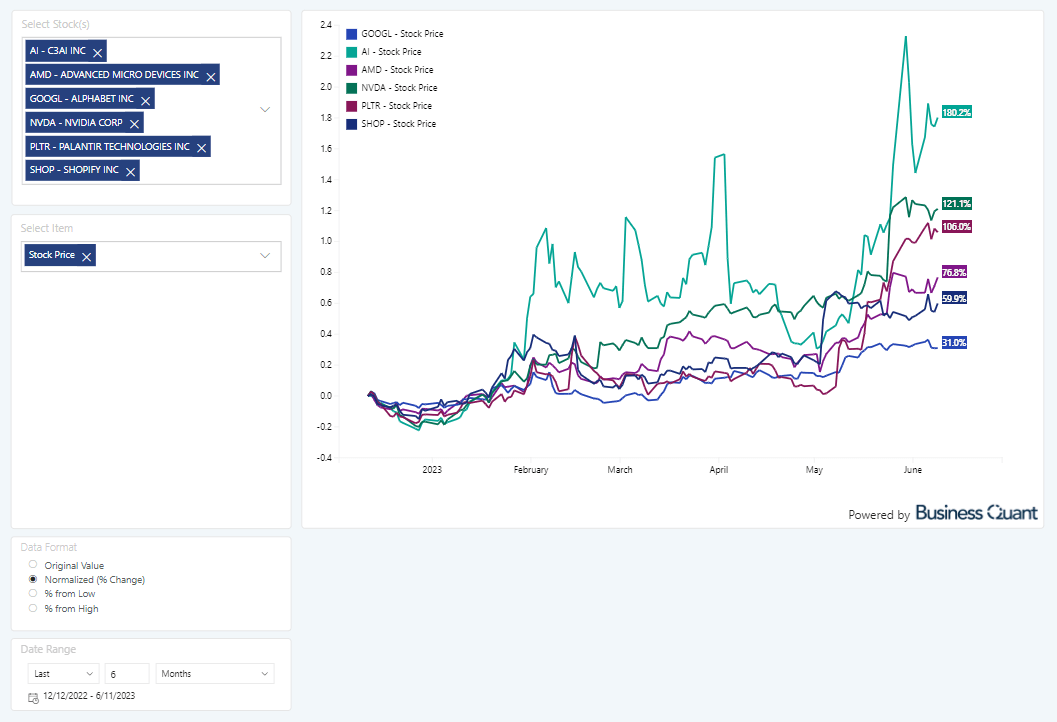Is Figma's AI The Future Of Design Software? A Competitive Analysis

Table of Contents
Figma's AI Features: A Deep Dive
Figma's integration of AI isn't just a gimmick; it's a strategic move to enhance the designer's workflow and boost overall efficiency. Let's delve into the specific features driving this transformation.
Generative Design Capabilities
Figma's generative AI tools are quickly becoming game-changers. They allow designers to generate a range of design assets, saving significant time and effort.
- Examples: Figma's generative AI can create variations of existing designs, suggest color palettes, generate unique illustrations, and even produce different image styles from a text prompt.
- Improved Workflow: Instead of manually creating multiple design iterations, designers can leverage AI to explore numerous options rapidly, leading to faster prototyping and more innovative solutions. This speeds up the design process significantly, allowing for more experimentation and iteration.
- Keywords: Figma generative AI, AI design tools, design automation.
Smart Features & Automation
Beyond generative design, Figma boasts several smart features that automate tedious tasks and enhance the overall design experience.
- Examples: Smart layout suggestions intelligently adjust elements based on content changes, content-aware resizing automatically adapts elements to different screen sizes, and automated design tasks like generating consistent spacing and alignment are simplified.
- Streamlined Design Process: These features free designers from repetitive, time-consuming tasks, allowing them to focus on the creative aspects of their work. The result is a more efficient and enjoyable design process.
- Keywords: Figma smart features, design automation, AI-powered design tools.
Collaboration and Design Systems Enhancement
Figma's AI significantly improves team collaboration and design system management.
- Examples: AI-powered suggestions for design system consistency ensure a unified brand experience across different projects. Improved version control and automated asset organization streamline team workflows. AI can also help identify and flag inconsistencies within a design system.
- Enhanced Communication and Organization: By automating many aspects of team collaboration, Figma's AI fosters better communication, reduces errors, and promotes a more efficient collaborative design process. This leads to higher-quality designs and faster project completion.
- Keywords: Figma collaboration, design systems, AI-powered collaboration.
Competitive Landscape: Figma vs. Other Design Software
While Figma is making significant strides with its AI integration, it's essential to analyze its position within the broader design software landscape.
Adobe Creative Suite (Photoshop, Illustrator, XD)
Adobe, a long-standing giant in the design industry, also offers AI features through its Sensei technology.
- Specific AI Features: Adobe Sensei powers features like content-aware fill in Photoshop, automatic selection tools in Illustrator, and smart design suggestions in XD.
- Comparison: While Adobe's AI features are powerful, Figma’s AI often feels more integrated into the core workflow, resulting in a more seamless user experience for many designers. Pricing models also differ significantly, with Figma offering a competitive free tier. Accessibility, especially for collaborative work, often favors Figma's cloud-based approach.
- Keywords: Adobe Sensei, Photoshop AI, Illustrator AI, XD AI, Figma vs Adobe.
Sketch & Other Vector-Based Editors
Sketch, a popular vector-based design tool, and other similar platforms are increasingly incorporating AI features.
- Key Competitors & AI Functionalities: While many offer limited AI assistance, none yet match the breadth and integration of Figma's AI offerings.
- Advantages & Disadvantages: Competitors often excel in specific niche areas, but Figma's AI provides a more holistic and integrated approach across various design tasks.
- Keywords: Sketch AI, vector design software, AI design tools comparison.
Specialized AI Design Tools
Several dedicated AI design tools are emerging, offering highly specialized AI capabilities.
- Examples: Tools focusing on specific tasks like logo generation, image upscaling, or generating variations of design elements.
- Comparison to Figma: These tools often excel in their specific niche but lack the breadth of functionality offered by a comprehensive design platform like Figma. Figma's integrated approach allows designers to utilize AI within their existing workflow without switching between multiple applications.
- Keywords: AI design tools, specialized AI design software, Figma alternatives.
Conclusion: The Future of Design with Figma AI and Beyond
Our analysis reveals that Figma is making a strong case for itself as a leader in AI-powered design software. Its integrated approach, focusing on both generative capabilities and workflow automation, sets it apart from many competitors. However, Figma's AI is still evolving. Future developments might include more sophisticated generative models, even more intelligent automation, and potentially personalized AI assistants tailored to individual designer needs.
The impact of AI on the design industry is undeniable, and Figma is playing a significant role in shaping this future. Its AI features are not just incremental improvements; they represent a fundamental shift in how designers approach their work. To experience the future of design software firsthand, explore Figma's AI features and harness the power of AI to enhance your creative process. Experiment with Figma's AI capabilities and discover how it can transform your workflow. Keywords: Figma AI, future of design, AI design tools, design software, AI in design.

Featured Posts
-
 Find Elizabeth Arden Products At Walmart Prices
May 10, 2025
Find Elizabeth Arden Products At Walmart Prices
May 10, 2025 -
 Taiwans Vice President Lais Ve Day Warning A New Totalitarian Threat
May 10, 2025
Taiwans Vice President Lais Ve Day Warning A New Totalitarian Threat
May 10, 2025 -
 Bilel Latreche Boxeur De Dijon Devant La Justice Pour Violences Conjugales
May 10, 2025
Bilel Latreche Boxeur De Dijon Devant La Justice Pour Violences Conjugales
May 10, 2025 -
 Leon Draisaitl Injury Oilers Leading Scorer Leaves Game
May 10, 2025
Leon Draisaitl Injury Oilers Leading Scorer Leaves Game
May 10, 2025 -
 Should You Buy Palantir Stock Before May 5th A Pre Earnings Analysis
May 10, 2025
Should You Buy Palantir Stock Before May 5th A Pre Earnings Analysis
May 10, 2025
